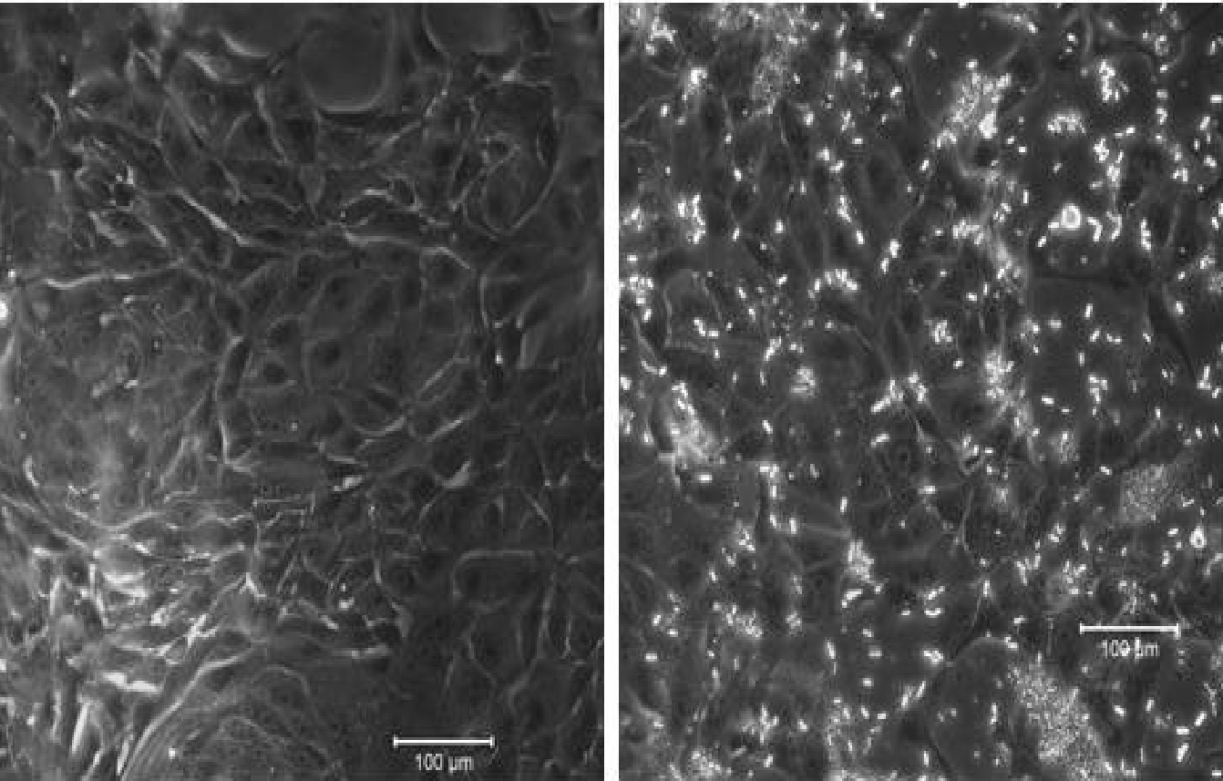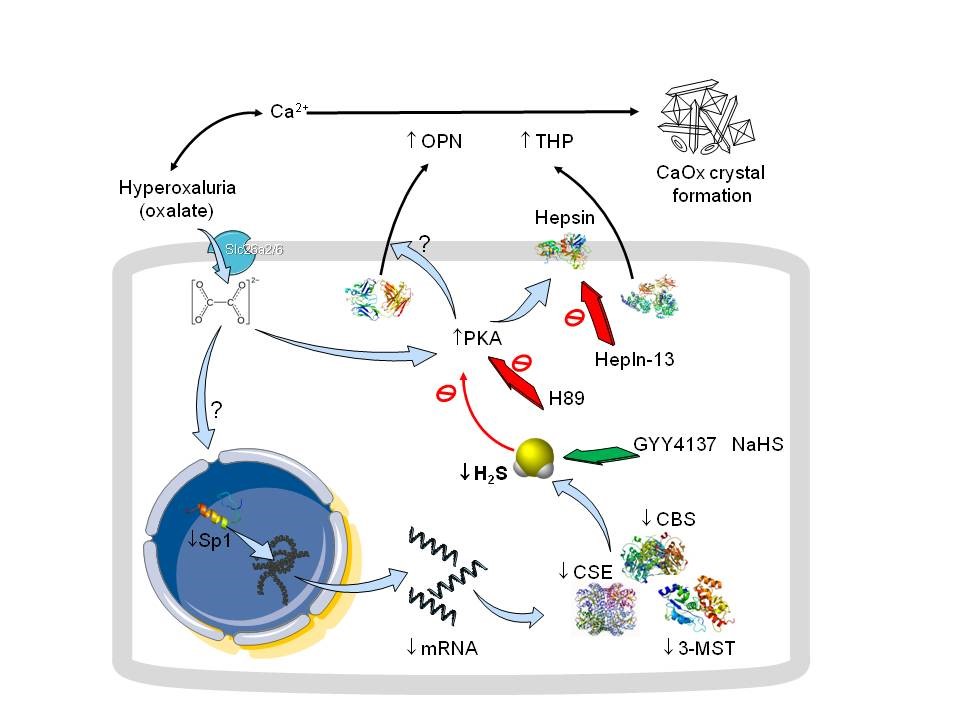Featured Scientist

Ming-Chieh Ma, Ph.D.
Professor
Hydrogen Sulfide Deficiency Contributes to Tubular Damage and Calcium Oxalate Crystal Formation in Hyperoxaluria Nephropathy
We found that H2S deficiency contributes to tubular damage and CaOx crystal formation in both an in vivo hyperoxaluric rat model and an in vitro oxalate-treated cell model. The decrease in H2S production can be attributed to the downregulation of H2S-producing enzymes including CBS, CSE, and 3-MST, as well as a reduction in their upstream regulator Sp1’s DNA transcriptional activity. Increased PKA activity induces the excessive tubular secretion of two anticrystallization molecules, OPN and THP, and depletes their renal contents, which is involved in hyperoxaluria/oxalate-induced tubular damage and CaOx crystal formation. The replenishment of H2S attenuates PKA activity and reverses these effects, representing a promising approach to treating kidney stones.
Keywords:Hydrogen sulfide, hyperoxaluria nephropathy, anticrystallization molecule
4 views
